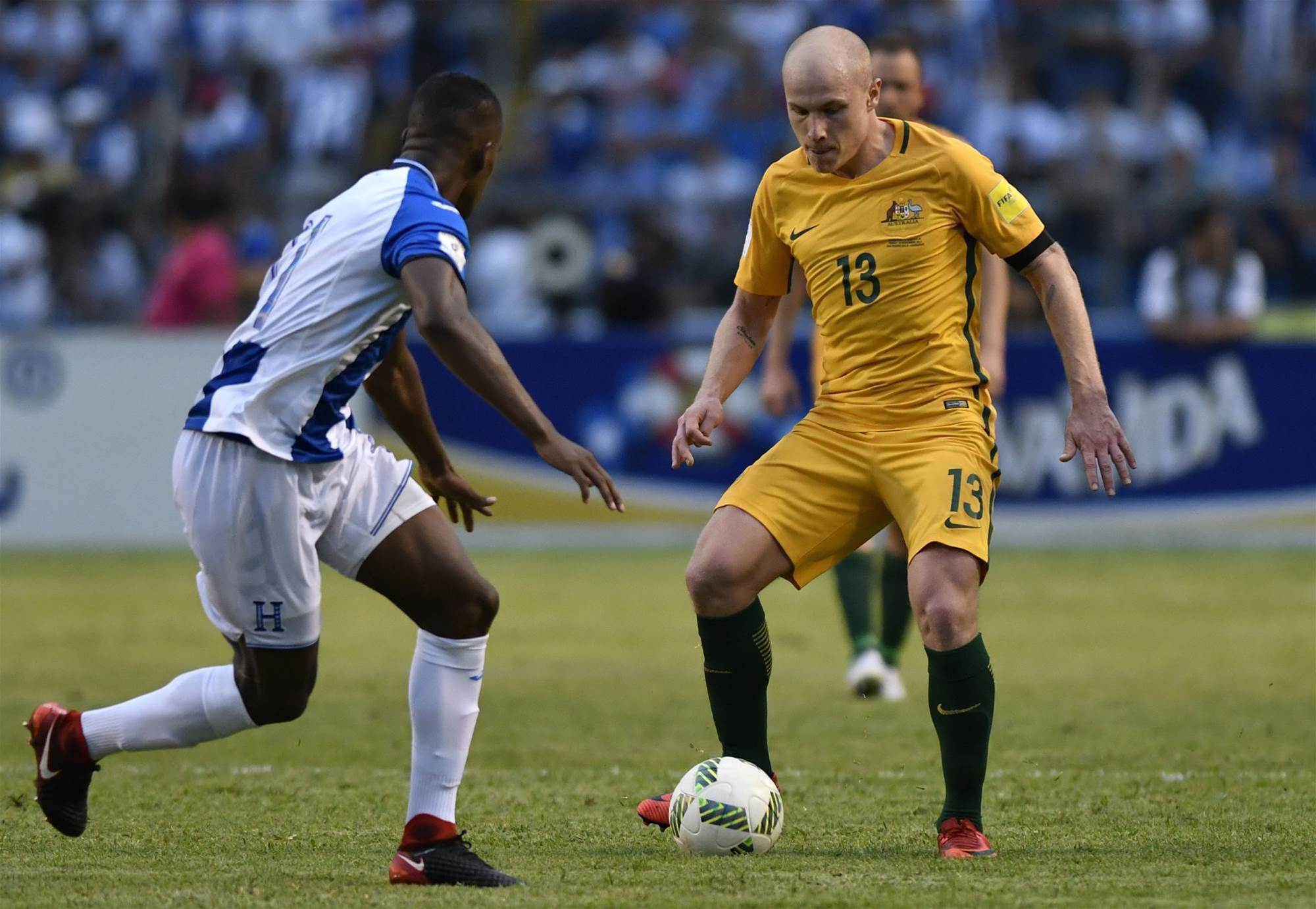They call it the murder capital of the world, but the only thing dangerous in San Pedro Sula was a bomb-site of a football pitch.
The whole world's a stage, but this Wednesday, none will shine brighter than Sydney. The 0-0 stalemate places the fate of Ange’s men squarely in their own hands - a win by any margin will see them qualify for a fourth straight World Cup – but it could have been done and dusted already.
Los Catrachos
For all the talk of a flashy, energised, dynamic Honduras, the Central Americans looked flat and uninspired. Defensively, they were outclassed, and Tomi Juric was the unappreciative benefactor of multiple chances.
Honduras coach Jorge Luis Pinto is renowned for the defensive solidarity of his teams – this is the man who led Costa Rica to a World Cup quarterfinal – but the Honduran backline failed to do the basics; cover each other, play the wingbacks offside, man-mark from crosses.
To add insult to injury, they were drawn far too high combatting the surging runs of Massimo Luongo, and to a lesser extent, Jackson Irvine.
This created space all over the pitch, and Honduras only pressed effectively when Australia played narrowly down the flanks. Their midfield was slow to withdraw, and lacklustre without the ball.
Expect a much deeper defensive set up from the Hondurans in Sydney – Aziz Behich and Josh Risdon had a field day cutting inside, but with Maynor Figueroa set to return, the Central Americans gain more experience, pace and physicality.
Forward inadequacy
The first 15 minutes were always going to be nerve-wracking, and Honduras had a clear chance to score early when a driven pass found acres of space behind Australia’s back three.
Trent Sainsbury surged backwards to make a lunging clearance, nicking the ball from behind. But this glimmer of success set the tone for the Honduran attack.
Pinto's men picked the ball up in midfield, but instead of driving forward early, played long, searching balls with little result. As the game wore on and both sides faded, these passes were plunged from deeper and became less accurate, gifting Australia total control of possession.
As a result, that was the last Honduras chance of note until the introduction of Carlo Costly.
The referee was quick to snuff out any attempts at gamesmanship from the Honduran forwards, which retained the flow of the match, and without consistent pressure upon them, the Socceroos started going through the motions.
When Honduras did push forward through the pace of their wide midfielders, they consistently looked to find early crosses, but failed to threaten aerially. Their insistence on providing crosses was one of their more questionable tactical decisions.
Bailey Wright and Sainsbury were particularly well organised to inhibit their opposing markers, but for the first half Honduras squandered any attacking intent by lofting aimless balls into the penalty area.

The Socceroos
As for Australia, Aaron Mooy was expectedly composed in possession, Mile Jedinak was tyrannically physical and Massimo Luongo was the Socceroos talisman in the first half – he carried his excellent Championship form in to the match, looking sharp, dangerous and at the centre of Australia’s best chances.
Aziz Behich was a close second for man of the match – for a fullback regarded as a defensive specialist, he still provides more attacking flair than Brad Smith in a Socceroos jersey.
If Josh Risdon could have replicated Behich's effort in the first half, Australia would have had three of four more chances. As it was, Risdon created both of the Socceroos’ best opportunities in the second. Still, it's doubtful he'll get the nod for Sydney.
Any real criticism directed at the Australians falls on Juric. The striker’s been in top form in Switzerland, and Postecoglou would have been mad not to select him, but to miss an absolute sitter – one on one with the keeper – and then bullet a header straight down the middle would kill any away side in those conditions.
Unfortunately, Juric’s control is better than his finishing, and those chances – bobble or no bobble - were disappointing. After that, the game meandered to a conclusion, the pitch physically disintegrating before the players’ eyes.
Looking forward
Until Costly’s introduction, Honduras looked lethargic and uncreative, but the powerful 35-year-old reignited some attacking spur – his power and experience will be key to Honduras’ chances in Sydney.
In the last 10 minutes he produced the finest effort of the match – a powerful strike that, had it been half a metre to either side of Mat Ryan, would have sent Australia back to Sydney in a far different position.
It was not to be, and by the referee’s whistle both sides looked relieved for the conclusion.
There is, however, one last residual factor from this match that comes into play. Australia now fly a chartered flight back to Sydney. As Archie Thompson said post match, they’ll have the flight to themselves - massage tables, physios and all.
Honduras, meanwhile, cannot afford a chartered flight. In fact, most of their team will fly economy. They’ll have a stop over in Los Angeles, and arrive in Sydney for Wednesday’s match another day underdone.
Australia may not pity them – they wouldn’t have felt sorry for us – but for all the talk of Australian football crises and the difficulties the Socceroos face, it does give some context to our World Cup journey so far.
We're not always the underdogs we think we are.
Related Articles

Socceroos midfielder embraces move to England

Cardiff City snap up sought-after Socceroos starlet













